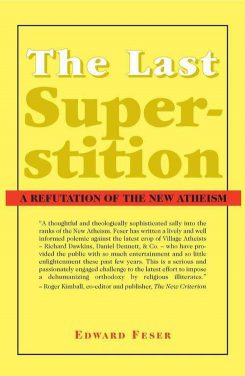Do You Even Science, Frater?
The other day, I went to a Thomistic Society talk about Aquinas’s views on the Problem of Evil and other topics. At one point, the presenter casually mentioned that humans engage in self-destructive behavior, like alcoholism, self-mutilation, drug addiction, etc., while non-human animals don’t.
That made my [citation needed] sense tingle, so I looked around. Among other things, I found Animal models of self-destructive behavior and suicide:
Research on nonhuman primates has demonstrated that self-mutilation is a common reaction to extreme disruptions of parental caretaking in other mammalian species as well. For example, isolated young rhesus monkeys engage in self-biting and head slapping and banging (21). Analgesia is also common in self-destructive animals.
Or this non-scholarly page about the effects of drugs, including addiction, in animals such as horses, goats, and even bees.
So apparently this speaker simply wasn’t aware of self-destructive behavior in non-human animals. I don’t remember what her point was, so it might have been a minor thing, but still, it wasn’t true.
But this brought to mind the previous Thomistic Institute talk I went to: there, the presenter casually mentioned that humans engage in abstract reasoning, while animals don’t.
Again, this didn’t seem quite right. This study from 2007 involved teaching dogs to push a button when shown a set of pictures of dogs, and another button when shown a set of pictures of landscapes.
Interestingly, presentation of pictures providing contradictive information (novel dog pictures mounted on familiar landscape pictures) did not disrupt performance, which suggests that the dogs made use of a category-based response rule with classification being coupled to category-relevant features (of the dog) rather than to item-specific features (of the background).
Or this paper, entitled simply Concept Learning in Animals, whose abstract says:
We suggest that several of the major varieties of conceptual classes claimed to be uniquely human are also exhibited by nonhuman animals. We present evidence for the formation of several sorts of conceptual stimulus classes by nonhuman animals: perceptual classes involving classification according to the shared attributes of objects, associative classes or functional equivalences in which stimuli form a class based on common associations, relational classes, in which the conceptual relationship between or among stimuli defines the class, and relations between relations, in which the conceptual (analogical) relationship is defined by the relation between classes of stimuli. We conclude that not only are nonhuman animals capable of acquiring a wide variety of concepts, but that the underlying processes that determine concept learning are also likely to be quite similar.
No one will deny that humans can perform mental feats that non-human animals can’t, as far as we can tell. Other animals can’t play chess, prove mathematical theorems, or form complex sentences, as far as I know. But at the same time, the issue isn’t a black-and-white “humans can reason abstractly and animals can’t.”
Lastly, I’ve written at length about Thomist Edward Feser, and his ignorance of science from Newton on up.
Individually, each of these mistakes are just that: mistakes. Or ignorance: philosophers can’t be expected to be masters of nuclear physics or animal cognition. Or simplifications that gloss over a complex idea in order to make a broader point.
But collectively, I do see a pattern of Thomists being wrong on matters of science in a thousand small ways. That suggests that either they don’t bother checking whether their beliefs are true, where possible, and correct their errors, or else they have other beliefs that lead them to erroneous conclusions. And either way, if I can’t trust them on the small stuff, why should I believe them on the big stuff?
